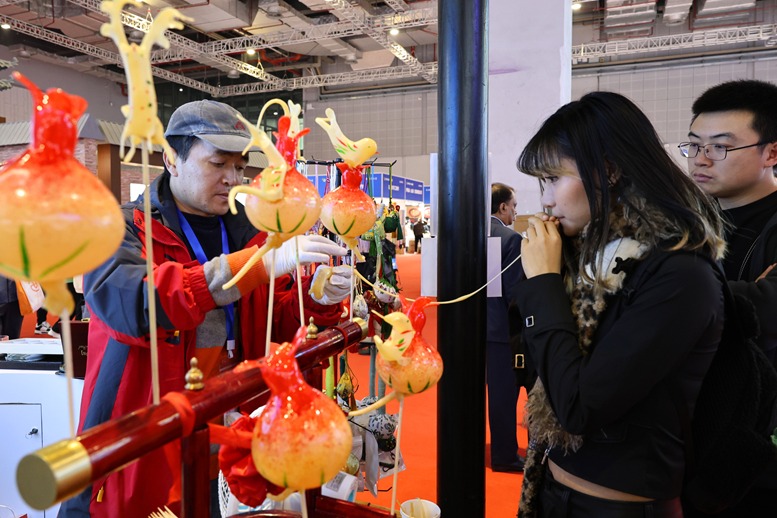China's manufacturing PMI remains stable in December


BEIJING - The purchasing managers' index (PMI) for China's manufacturing sector stood at 50.2 in December, unchanged from November, the National Bureau of Statistics (NBS) said Tuesday.
A reading above 50 indicates expansion, while a reading below it reflects contraction.
This marks the second straight month of expansion, partly buoyed by booming supply and demand as well as increasing export orders, said NBS senior statistician Zhao Qinghe.
On a month-on-month basis, the sub-index for production gained 0.6 points to 53.2 in December, signaling faster expansion, while that for new orders fell slightly to 51.2.
Imports and exports were improving in December, said Zhao, as the sub-index for new export orders gained 1.5 points to 50.3, the first expansion since June 2018. The sub-index for imports climbed 0.1 point month on month to 49.9.
The PMI of mid-sized enterprises went up 1.9 points from the previous month to 51.4, while that of big enterprises fell slightly to 50.6.
In December, PMI of high-tech manufacturing, equipment manufacturing and consumer goods all rose for the third straight month, showing accelerated transformation and upgrades, said Zhao.
Meanwhile, the PMI for China's non-manufacturing sector edged down to 53.5 in December, the NBS data showed.
The sub-reading for the service sector's business expectations fell to 59.1, still in the expansion zone, showing that non-manufacturing enterprises remained optimistic about future market prospects, Zhao said.
The readings showed signs of stabilizing in the economy, thanks to the effects of its counter-cyclical adjustment efforts, though the approaching Spring Festival put a dent in the construction and wholesale sectors.
Wen Tao, an analyst with the China Logistics Information Center, attributed December's stable manufacturing PMI to higher market demand unleashed by the coming holidays and a bigger contribution of new engines of the economy.
Data for the whole year showed that China has maintained a relatively sound economic development in 2019, Wen noted, adding that the country has greater economic resilience and capacities to fend off risks to ensure a steady economic growth in the following year.
As prospects remain unclear in 2020, continued efforts should be made to reinforce the foundation of economic development, said Zhang Liqun, a researcher with the Development Research Center of the State Council.
Tuesday's data also showed China's composite PMI slid slightly to 53.4, but was 0.3 points higher than this year's average, indicating steady expansion in the production of China's companies.




































